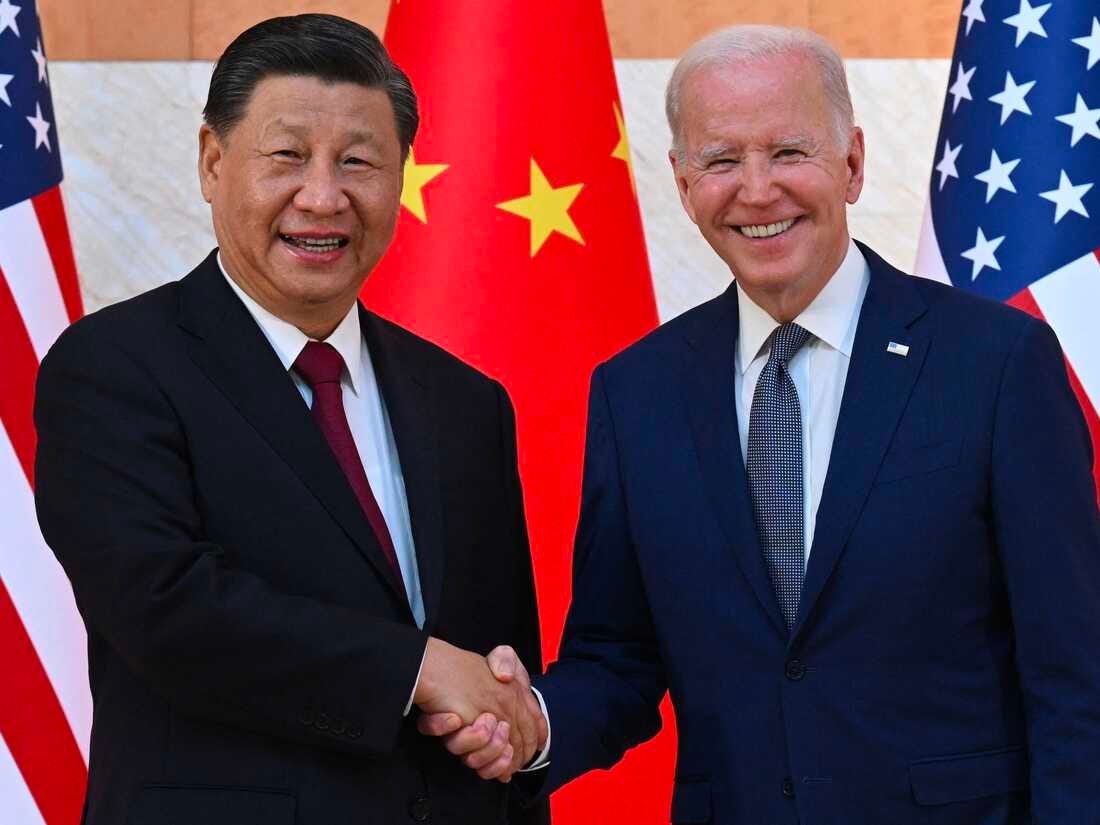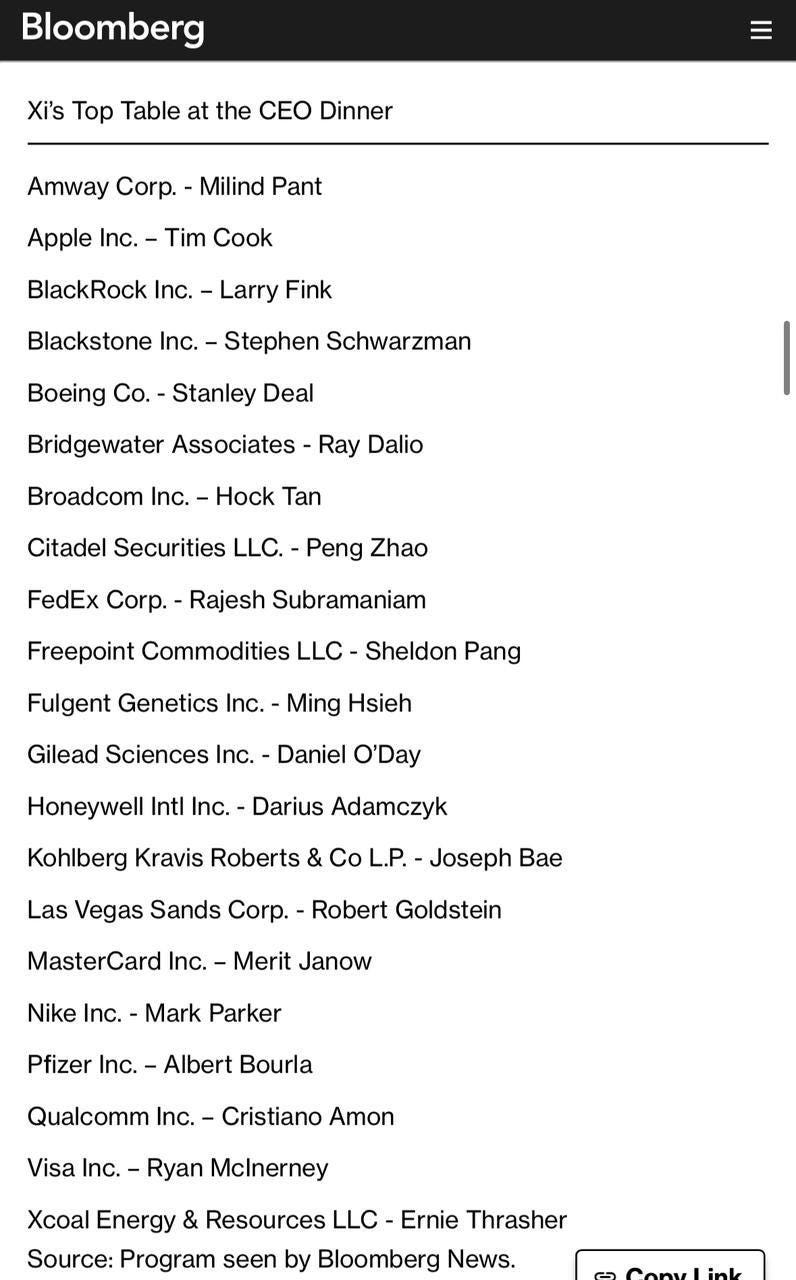Here’s what happened in Growth Dragons this week:
Biden-Xi Meeting Marks a New Phase in the US-China Relationship: Coopetition
How to Invest in the China Market?
Alibaba Shares Plunge Following 3Q Results
Tencent 3Q Results Showed Growth Momentum
Ping An's Strategic Restructuring Move
#1 Biden-Xi Meeting Marks a New Phase in the US-China Relationship: Coopetition
The highly anticipated meeting between Xi and Biden was warmly welcomed by the global community. The discord between the world's two largest economies had caused significant hardships for numerous nations and businesses.
The prevailing sentiment is that it has made a relatively successful start in fostering discussions and comprehending the viewpoints of both parties. There is a renewed willingness to communicate and share national interests, recognizing the mutual interdependence of the two countries. The meeting also symbolized the resumption of military communications, which had been suspended following the spy balloon incident. While this marks a positive beginning, it is important to anticipate ongoing geopolitical tensions and a lingering lack of complete trust between the two nations.
We have observed that the US-China relationship has evolved through three distinct phases, beginning with the era of Deng Xiaoping, and can be described as follows: Cooperation → Competition → Coopetition.
Cooperation: When China embarked on the path of economic openness under Deng Xiaoping in the late 1970s, it marked the moment when China began experimenting with a capitalist market model in special economic zones. This was also the time when American companies first ventured into previously inaccessible Chinese markets. Corporations like General Electric, Coca-Cola, IBM, and Boeing were among the early pioneers. In 1979, China and the US officially reestablished diplomatic relations, laying the foundation for a growing friendship between the two nations.
Competition: The dynamics shifted with the election of President Trump in the United States. His initiation of a trade war with China set off a downward spiral in the relationship. When Biden assumed office, tensions did not ease, and more confrontational policies were implemented against China, prompting retaliatory measures and causing global repercussions for businesses and nations.
Coopetition: We believe that this recent meeting has signaled the beginning of a new era. Both countries have acknowledged their competitive nature but also recognize the importance of maintaining friendly relations. The days of the amicable relationship seen during Deng's era are unlikely to return, but neither is an outright hostile stance sustainable. Both nations have recognized the necessity of peaceful engagement, given their high degree of mutual dependency. We also anticipate potential rollback of some antagonistic policies, although not all. The pursuit of global superiority will continue, but the two nations are poised to coexist, cooperating in some areas while exercising caution in others.
This shift is evident in Biden's speech, where he expressed his belief in a stable US-China relationship, emphasizing commitments to the Asia-Pacific region. However, he also reiterated his commitment to reducing risk and diversifying away from China, indicating the likelihood of continued trade sanctions.
Xi, on the other hand, has proposed initiatives such as loaning pandas to the US as a symbol of peace and collaboration, along with welcoming 50,000 US students to study in China, promoting cultural exchange and understanding among future leaders of both nations.
Businesses thrive on stability and prosperity, which can only be achieved when these two nations maintain amicable relations. Xi was honored as the guest of honor at the APEC Summit dinner, which cost $40,000 per seat. The CEOs of major US companies were eager to engage with Xi, recognizing the potential access to the vast 1.4 billion-strong market. The attendees at Xi's table included:
Furthermore, a post-dinner reception, costing $2,000 per person, was attended by prominent entrepreneurs such as Elon Musk.
These business leaders likely sought insight into Xi's attitudes toward US companies, particularly as the business environment in China had become increasingly challenging in recent years. If Xi indeed exhibits a more favorable disposition toward them, we anticipate a rush of US companies reentering the Chinese market. This could lead to increased foreign direct investment (FDI) and a revitalization of China's economic growth trajectory.






